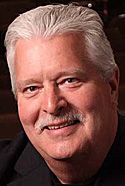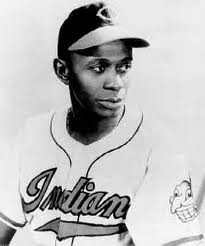Lawrence University award-winning composer and baseball lover Fred Sturm has combined his two loves in a musical tribute to Hall of Fame pitcher Leroy Robert “Satchel” Paige.
The Baseball Music Project is releasing “Don’t Look Back,” a newly commissioned work written by Lawrence’s director of jazz studies and improvisational music that pays homage to the legendary pitcher and Negro Leagues superstar and some of his most celebrated quotes.
Named in honor of what is arguably Paige’s most famous line — “Don’t look back. Something might be gaining on you.” — the work is being released July 7 in conjunction with what would have been Paige’s 106th birthday.

Wisconsin musician Woody Mankowski provides the vocals and plays saxophone on the piece and is accompanied by Lawrence Conservatory of Music faculty members Bill Carrothers, piano, Dane Richeson, drums and Mark Urness, bass.
“Don’t Look Back” is Sturm’s most recent contribution to the BMP, which is part symphony concert, part musical American history lesson. Sturm’s “A Place Where It Would Always Be Spring” made its world premiere with legendary Yankees shortstop Tony Kubek serving as narrator. A 16-minute, nine-movement tour de force inspired by prose and poetry about baseball, the piece was written in 1994 for a commission by five American symphony orchestras.
“Add Satchel’s joyful swagger, humor and down home wisdom to the greatest pitching record in baseball history and you get the stuff of an American icon,” said Sturm, who serves as artistic director for the BMP. “I worked my favorite Paige quote into the song’s lyrics: ‘Work like you don’t need the money. Love like you’ve never been hurt. Dance like nobody’s watching.’ That falls somewhere between Mark Twain and Yogi Berra.”
A 1973 graduate of Lawrence, Sturm was honored with DownBeat magazine’s 2010 Jazz Education Achievement Award and was the 2003 recipient of the prestigious International Association for Jazz Education and ASCAP Commission in Honor of Quincy Jones. His works have been performed by ensembles worldwide, printed by eight international publishers and issued on four recording labels.

Paige was legendary for both his blazing fastball — Joe DiMaggio called him “the fastest pitcher” he had ever faced — and his storytelling. He spent most of his career in the Negro Leagues, becoming one of the league’s most colorful characters, baffling hitters and entertaining crowds with an assortment of creatively named pitches, including the “Bat Dodger” and this famous “Hesitation Pitch.”
In 1948, at the age of 42, Paige became the oldest rookie in Major League history, making his debut with Bill Veeck’s Cleveland Indians and helping them win the pennant. Although he officially retired in 1953, Paige made a special, three-inning appearance for the Kansas City Athletics in 1965, becoming MLB’s oldest player ever at the age of 59. He was elected to baseball’s coveted Hall of Fame in 1971.
The brainchild of music producer Bob Thompson, the BMP was launched in 2006 with help from Hall of Famer Dave Winfield. Through concerts, recordings and other events, the project seeks to raise awareness of the cultural lineage and historical significance of the more than 2,500 songs written about baseball.
Winfield has appeared as narrator with the BMP in performances by the Chicago, Detroit, Houston, Phoenix, San Diego and Seattle Symphonies, among others. A goal is to have it performed in every American community that supports both a professional baseball team and a symphony orchestra.
About Lawrence University
Founded in 1847, Lawrence University uniquely integrates a college of liberal arts and sciences with a world-class conservatory of music, both devoted exclusively to undergraduate education. Ranked among America’s best colleges by Forbes, it was selected for inclusion in the book “Colleges That Change Lives: 40 Schools That Will Change the Way You Think About College.” Individualized learning, the development of multiple interests and community engagement are central to the Lawrence experience. Lawrence draws its 1,445 students from 44 states and 35 countries. Follow Lawrence on Facebook.